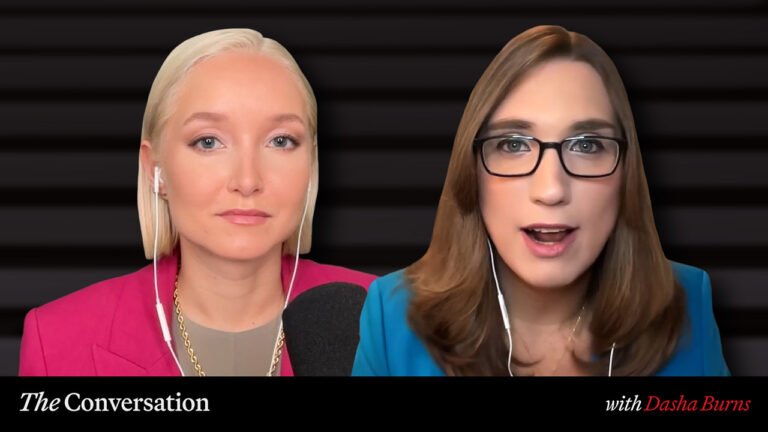
For decades Congress has been gradually ceding its constitutional authority to the executive branch of government. And the executive branch has stretched that authority far beyond anything Congress or the Constitution intended. As the branch of government charged with levying taxes, including tariffs, it’s time for Congress to reclaim that constitutional authority.
Article I, Section 8, of the U.S. Constitution says,“The Congress shall have Power To lay and collect Taxes, Duties, Imposts and Excises, to pay the Debts and provide for the common Defence and general Welfare of the United States …”
It’s Congress’s job to impose and collect taxes and duties, which include tariffs. It’s not about whether tariffs are good or bad economic policy. It’s about who has the constitutional authority to impose them.
Because of the challenges created by two world wars and the occasional need for a quick U.S. response to international developments, “Congress enacted statutes authorizing the President to declare a state of emergency and make use of extraordinary delegated powers.”
Over time, Congress became concerned that presidents were taking advantage of those “extraordinary powers.” A bipartisan Senate report released in 1974, “A Brief History of National Emergencies and Delegated Emergency Powers,” found “at least 470 significant emergency statutes without time limitations delegating to the Executive extensive discretionary powers, ordinarily exercised by the Legislature, …”
As a result, Congress passed the National Emergencies Act (1976), ending most “emergencies” that gave the president the justification for imposing tariffs, and the International Emergency Economic Powers Act (1977) or IEEPA to limit presidential overreach.
According to an analysis on Congress’s website, IEEPA affirmed that “emergency authorities [are] employed only with respect to a specific set of circumstances which constitute a real emergency, and for no other purpose,” asserting that “a state of emergency should not be a normal state of affairs.”
In short, IEEPA was passed to keep a president from declaring an emergency to use tariffs as a basic tool for implementing economic and foreign policy. But that’s exactly how President Trump is using them.
A three-judge panel on the Court of International Trade recently called out Trump’s abuse of IEEPA and ruled, “The Worldwide and Retaliatory Tariff Orders exceed any authority granted to the President by IEEPA to regulate importation by means of tariffs,” thus striking down many of his tariffs.
An Appeals Court has partially stayed the ruling to give the appellate judges time to consider the arguments. The case will likely go to the U.S. Supreme Court, where Trump’s tariffs may have an uphill battle given the court’s position on the “major questions doctrine,” which says policies with significant economic impacts need clear congressional authority.
No doubt that’s what Republicans who are uneasy with Trump’s tariff tantrums hope will happen — getting the country past the worst of the tariff turmoil without Republicans having to stand up to the president.
But they may be disappointed. Trump has implied that if the court strikes down his tariff overreach, there are other ways to justify his tariffs. As the Wall Street Journal reports, “U.S. officials are weighing their options should they need to find a new legal authority to impose the president’s steep tariffs.”
Remember how critical Republicans were of President Biden for searching for new legal authority when the Supremes ruled against his student loan forgiveness schemes? Would Republicans be just as critical if Trump does the same?
Congress needs to reclaim its control over U.S. taxing authority, including tariffs. And the only way it can do that is either to amend IEEPA to strengthen presidential restrictions, pass a different law, or take stronger measures to challenge the president.
Of course, the president would likely veto any bill. So, Congress would need the constitutionally required two-thirds vote in both the House and Senate to override the veto. That won’t be easy.
Every Democrat will vote for the bill, not to reclaim Congress’s constitutional rights, but to embarrass the president. Democrats didn’t speak out when President Barack Obama exceeded his authority in granting legal status to some 830,000 undocumented children brought to the U.S. by their parents. And even though Congress has the “power of the purse,” Democrats largely remained silent when Biden tried to spend more than $400 billion on student loans.
But it will take a lot of Republicans voting with Democrats to pass legislation over a presidential veto that limits Trump’s tariff powers.
There was a time when House and Senate leadership zealously protected the legislative branch’s constitutional authority. House Speaker Sam Rayburn (D-Texas) and Senate Majority Leader Robert Byrd (D-W.Va.) closely guarded Congress’s constitutional prerogatives. Do Republicans have the courage to do the same?
Merrill Matthews is a public policy and political analyst and the co-author of “On the Edge: America Faces the Entitlements Cliff.” Follow him on X@MerrillMatthews.

